Грег Иган - Distress
Здесь есть возможность читать онлайн «Грег Иган - Distress» весь текст электронной книги совершенно бесплатно (целиком полную версию без сокращений). В некоторых случаях можно слушать аудио, скачать через торрент в формате fb2 и присутствует краткое содержание. Жанр: Фантастика и фэнтези, на английском языке. Описание произведения, (предисловие) а так же отзывы посетителей доступны на портале библиотеки ЛибКат.
- Название:Distress
- Автор:
- Жанр:
- Год:неизвестен
- ISBN:нет данных
- Рейтинг книги:3 / 5. Голосов: 1
-
Избранное:Добавить в избранное
- Отзывы:
-
Ваша оценка:
- 60
- 1
- 2
- 3
- 4
- 5
Distress: краткое содержание, описание и аннотация
Предлагаем к чтению аннотацию, описание, краткое содержание или предисловие (зависит от того, что написал сам автор книги «Distress»). Если вы не нашли необходимую информацию о книге — напишите в комментариях, мы постараемся отыскать её.
Distress — читать онлайн бесплатно полную книгу (весь текст) целиком
Ниже представлен текст книги, разбитый по страницам. Система сохранения места последней прочитанной страницы, позволяет с удобством читать онлайн бесплатно книгу «Distress», без необходимости каждый раз заново искать на чём Вы остановились. Поставьте закладку, и сможете в любой момент перейти на страницу, на которой закончили чтение.
Интервал:
Закладка:
Sometimes we can even convince ourselves that nothing’s wrong. For a while.
"How long were you married?"
"Almost a year."
I’d been curious, of course, but I hadn’t pressed him for details, Junk DNA was a science documentary, not some sleazy expose; his private life was none of my business.
There was also an informal conversation I’d had with Rourke, the day after the interview. We’d been walking through the grounds of the university, just after I’d taken a few minutes' footage of him at work—helping a computer scour the world’s Hindi-speaking networks in search of vowel shifts (which he usually did from home, but I’d been desperate for a change of backdrop, even if it meant distorting reality). The University of Manchester had eight separate campuses scattered throughout the city; we were in the newest, where the landscape architects had gone wild with engineered vegetation. Even the grass was impossibly lush and verdant; for the first few seconds, even to me, the shot looked like a badly forged composite: sky filmed in England, ground filmed in Brunei.
Rourke said, "You know, I envy you your job. With VA, I’m forced to concentrate on a narrow area of change. But you’ll have a bird’s eye view of everything."
"Of what? You mean advances in biotechnology?"
"Biotech, imaging, AI… the lot. The whole battle for the H-words."
"The H-words?"
He smiled cryptically. "The little one and the big one. That’s what this century is going to be remembered for. A battle for two words. Two definitions."
"I don’t have the slightest idea what you’re talking about." We were passing through a miniature forest in the middle of the quadrangle; dense and exotic, as wayward and brooding as any surrealist’s painted jungle.
Rourke turned to me. "What’s the most patronizing thing you can offer to do for people you disagree with, or don’t understand?"
"I don’t know. What?"
"Heal them. That’s the first H-word. Health ."
"Ah."
"Medical technology is about to go supernova. In case you hadn’t noticed. So what’s all that power going to be used for? The maintenance—or creation—of health. But what’s health? Forget the obvious shit that everyone agrees on. Once every last virus and parasite and oncogene has been blasted out of existence, what’s the ultimate goal of healing ? All of us playing our preordained parts in some Edenite natural order "—he stopped to gesture ironically at the orchids and lilies blossoming around us—"and being restored to the one condition our biology is optimized for: hunting and gathering, and dying at thirty or forty? Is that it? Or… opening up every technically possible mode of existence? Whoever claims the authority to define the boundary between health and disease claims… everything."
I said, "You’re right: the word’s insidious, the meaning’s open-ended—and it will probably always be contentious." I couldn’t argue with patronizing, either; Mystical Renaissance were forever offering to "heal" the world’s people of their "psychic numbing," and transform us all into "perfectly balanced" human beings. In other words: perfect copies of themselves, with all the same beliefs, all the same priorities, and all the same neuroses and superstitions.
"So what’s the other H-word? The big one?"
He tipped his head and looked at me slyly. "You really can’t guess? Here’s a clue, then. What’s the most intellectually lazy way you can think of, to try to win an argument?"
"You’re going to have to spell it out for me. I’m no good at riddles."
"You say that your opponent lacks humanity ."
I’d fallen silent, suddenly ashamed—or at least embarrassed—wondering just how deeply I’d offended him with some of the things I’d said the day before. The trouble with meeting people again after interviewing them was that they often spent the intervening time thinking through the whole conversation, in minute detail—and concluding that they’d come out badly.
Rourke said, "It’s the oldest semantic weapon there is. Think of all the categories of people who’ve been classified as non-human, in various cultures, at various times. People from other tribes. People with other skin colors. Slaves. Women. The mentally ill. The deaf. Homosexuals. Jews. Bosnians, Croats, Serbs, Armenians, Kurds—"
I said defensively, "Don’t you think there’s a slight difference between putting someone in a gas chamber, and using the phrase rhetorically?"
"Of course. But suppose you accuse me of lacking humanity. What does that actually mean? What am I likely to have done? Murdered someone in cold blood? Drowned a puppy? Eaten meat? Failed to be moved by Beethoven’s Fifth? Or just failed to have—or to seek—an emotional life identical to your own in every respect? Failed to share all your values and aspirations?"
I hadn’t replied. Cyclists whirred by in the dark jungle behind me; it had begun to rain, but the canopy protected us.
Rourke continued cheerfully. "The answer is: any one of the above. Which is why it’s so fucking lazy. Questioning someone’s humanity puts them in the company of serial killers—which saves you the trouble of having to say anything intelligent about their views. And it lays claim to some vast imaginary consensus, an outraged majority standing behind you, backing you up all the way. When you claim that Voluntary Autists are trying to rid themselves of their humanity, you’re not only defining the word as if you had some divine right to do that… you’re implying that everyone else on the planet—short of the reincarnations of Adolf Hitler and Pol Pot—agrees with you in every detail." He spread his arms and declaimed to the trees, "Put down that scalpel, I beseech you… in the name of all humanity!"
I said lamely, "Okay. Maybe I should have phrased some things differently, yesterday. I didn’t set out to insult you."
Rourke shook his head, amused. "No offense taken. It’s a battle, after all—I can hardly expect instant surrender. You’re loyal to a narrow definition of Big H—and maybe you even honestly believe that everyone else shares it. I support a broader definition. We’ll agree to disagree. And I’ll see you in the trenches."
Narrow? I’d opened my mouth to deny the accusation, but then I hadn’t known how to defend myself. What could I have said? That I’d once made a sympathetic documentary about gender migrants? (How magnanimous.) And now I had to balance that with a frankenscience story on Voluntary Autists?
So he’d had the last word (if only in real time). He’d shaken my hand, and we’d parted.
I played the whole thing through, one more time. Rourke was remarkably eloquent—and almost charismatic, in his own strange way— and everything he’d said was relevant. But the private terminology, the manic outbursts… it was all too weird, too messy and confrontational.
I left the take unused, unquoted.
I’d gone on to another appointment at the university: an afternoon with the famous Manchester MIRG—Medical Imaging Research Group. It had seemed like too good a chance to miss—and imaging, after all, lay behind the definitive identification of partial autism.
I skimmed through the footage. A lot of it was good—and it would probably make a worthwhile five-minute story of its own, for one of SeeNet’s magazine programs—but it was clear now that Rourke’s own concise notepad demonstration had supplied all the brain scans Junk DNA really needed.
The main experiment I’d filmed involved a student volunteer reading poetry in silence, while the scanner subtitled the image other brain with each line as it was read. There were three independently-computed subtitles, based on primary visual data, recognized word-shapes, and the brain’s final semantic representations… the last sometimes only briefly matching the others, before the words' precise meanings diffused out into a cloud of associations. However eerily compelling this was, though, it had nothing to do with Lament’s area.
Читать дальшеИнтервал:
Закладка:
Похожие книги на «Distress»
Представляем Вашему вниманию похожие книги на «Distress» списком для выбора. Мы отобрали схожую по названию и смыслу литературу в надежде предоставить читателям больше вариантов отыскать новые, интересные, ещё непрочитанные произведения.
Обсуждение, отзывы о книге «Distress» и просто собственные мнения читателей. Оставьте ваши комментарии, напишите, что Вы думаете о произведении, его смысле или главных героях. Укажите что конкретно понравилось, а что нет, и почему Вы так считаете.
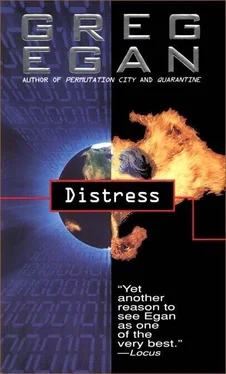

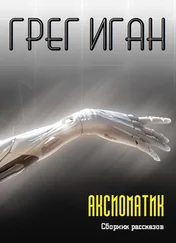
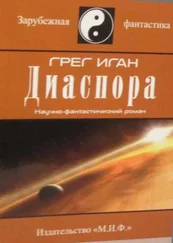
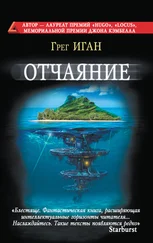
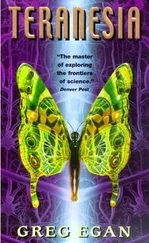
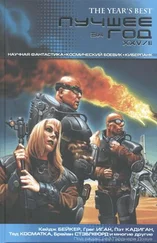

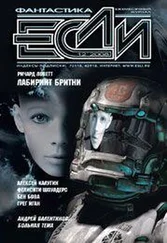
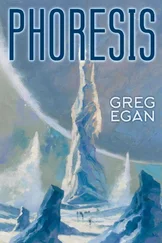
![Грег Иган - Рассказы [компиляция]](/books/419837/greg-igan-rasskazy-kompilyaciya-thumb.webp)
